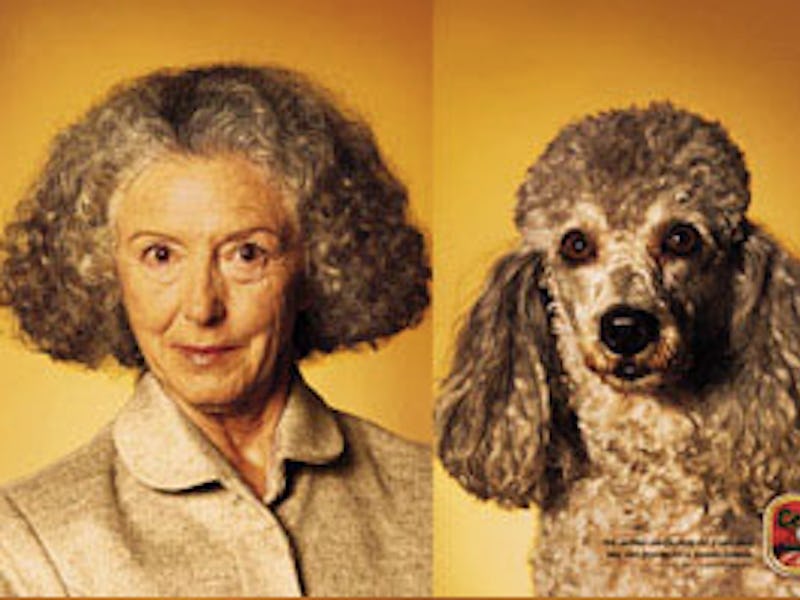Why Dogs Look Like Their Owners, According to Science
An age-old question answered.

We’ve all had this moment: You’re driving down a street in the summer with the windows down and meet eyes with a person walking their dog. It’s a pretty common scene, except for the glaring fact that the pup looks exactly like its human. You suddenly start pondering the fragility of life and how this person and pooch — out of billions of their respective species — found each other in the vastness of the universe.
A neuroscientist tells Inverse this is no accident.
“People may choose dogs that look like them due to the mere-exposure effect, or the theory that we like things that we are familiar with,” Shannon Odell, a neuroscience Ph.D. candidate at Weill Cornell and host of Inverse’s Your Brain on Blank series, tells me. “We tend to be super familiar with our own faces from looking in the mirror, which might be why we like and choose dogs with similar features.”
There’s a wealth of research to support this. In one such study from 1999, 261 women were asked to pick which breed of dog they preferred based on a small sample of choices: lop-eared pups (English Springer Spaniel, Beagle) and pricked ears (Siberian Husky, Basenji). Women with longer hair tended to select the lop-eared dogs, whereas women with short hairstyles overwhelmingly selected the breeds with pricked ears.
“Consistent with this interpretation, women with long hair tended to prefer the lop-eared dogs while women with the short hairstyles preferred the prick-eared dogs, consistent with the folk belief,” the researchers write. “These results are interpreted in light of social psychological principles, namely the effects of familiarity and mere exposure on affect and interpersonal attraction.”
Part of a Cesar dog food ad.
Since this was published, many other scientists have tried to see if participants could correctly match dogs with their owners based on photos. In one Japanese study, 373 participants were shown 20 correct dog-owner pairs and another 20 false ones — and still picked the right pooch-human pairs two-thirds of the time.
“According to that study, eyes are important,” Odell explains. “People could only match dog-to-dog-owner when their eyes were visible; masking the eyes made it much more difficult for the subjects.”
Who knows why we prefer dogs that look like us. Maybe it’s born out of some deep-seated narcissism all humans share to varying degrees. Or maybe it reflects our eternal yearning to be dogs.
I, for one, choose the latter.